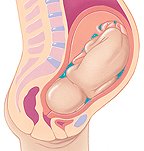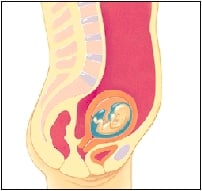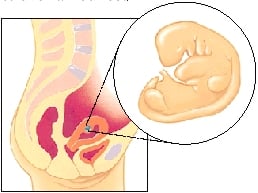نوشته ها
Obstetrician / Gynecologist Overview

فهرست
Obstetrician / Gynecologist Overview
An obstetrician is a physician who has successfully completed specialized education and training in the management of pregnancy, labor, and pueperium (the time-period directly following childbirth). A gynecologist is a physician who has a successfully completed specialized education and training in the health of the female reproductive system, including the diagnosis and treatment of disorders and diseases. Typically, the education and training for both fields occurs concurrently.
An obstetrician/gynecologist is a physician specialist who provides medical and surgical care to women and has particular expertise in pregnancy, childbirth, and disorders of the reproductive system. This includes preventative care, prenatal care, detection of sexually transmitted diseases, Pap test screening, family planning, etc.
An obstetrician/gynecologist—commonly abbreviated as OB/GYN—can serve as a primary physician and often serve as consultants to other physicians. OB/GYNs can have private practices, work in hospital or clinic settings, and maintain teaching positions at university hospitals. OB/GYNs may also work public health and preventive medicine administrations.
OB/GYNs have a broad base of knowledge and can vary their professional focus. Many develop unique practices, providing high-quality health care for women. OB/GYNs may choose to specialize in the following areas:
- Acute and chronic medical conditions
- Adolescent gynecology
- Behavioral problems
- Cancer
- Endocrinology
- Health maintenance during pregnancy
- Infertility
- Operative gynecology
- Pregnancy and delivery
- Preventative health
- Urinary tract disorders
OB/GYN Education and Training Requirements
The education and training requirements for obstetrics/gynecology are set by the American Board of Obstetrics and Gynecology (ABOG) and include the following:
- Graduation from an approved medical school
- Completion of an OB/GYN residency program (minimum of 4 years in length) that is accredited by the American Council for Graduate Medical Education (ACGME)
- Rotations divided between obstetrics, gynecology, gynecologic oncology, reproductive endocrinology, and ultrasonography
- Experience in primary and preventive care role for the equivalent of at least 6 months of the residency, including inpatient and ambulatory care; diagnosis and management of breast disease and lower urinary tract dysfunction; performance and interpretation of diagnostic pelvic and transvaginal ultrasound
- Increase in patient responsibility with each year of training
- Serving as chief (senior) resident during final year of residency
OB/GYN Board Certification
Once the above requirements are met, physicians are allowed to take the certifying examinations given by ABOG. Physicians who pass the examination are granted board certified status in Obstetrics and Gynecology, a pre-requisite to subspecialty certification.
If certified in obstetrics and gynecology after 1986, the physician must complete a recertification process every 10 years to maintain certified status. If certified before 1986, the physician can take a voluntary recertification process.
OB/GYN Subspecialties
There are four recognized subspecialties in the field of obstetrics/gynecology:
- Gynecologic oncology
- Maternal/fetal medicine
- Reproductive endocrinology and infertility
- Urogynecology/reconstructive pelvic surgery
Each subspecialty has its own certification exams administered by ABOG, and physicians can become certified in one or more of them. Certification is valid provided the primary certification in obstetrics and gynecology is up-to-date.
Gynecologic Oncology
- Concerned with consultation and comprehensive management of patients with gynecologic cancer
- Requires knowledge of major cancer treatments, diagnosis, and complications of oncology
Maternal/Fetal Medicine
- Concerned with the care and consultation of patients with complications of pregnancy
- Requires knowledge of obstetrics, medical and surgical complications of mother and fetus, current approaches to diagnosis and treatment, and newborn adaptation
Reproductive Endocrinology and Infertility
- Concerned with the management of complex problems relating to reproductive endocrinology and infertility
- Requires knowledge of diagnosis and treatment of endocrinology and infertility disorders
Urogynecology/Reconstructive Pelvic Surgery
- Classified as surgical subspecialty
- Concerned with the health of the female urinary tract and surgery as a treatment
- Requires knowledge of complex benign pelvic conditions, lower urinary tract disorders, pelvic floor dysfunction, and reconstructive pelvic surgery











